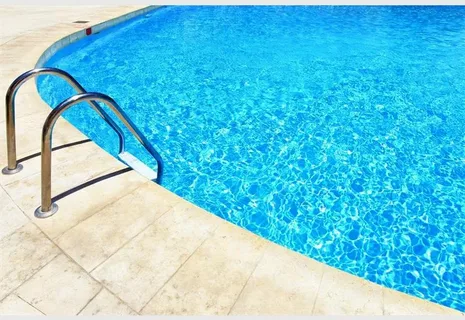Owning a swimming pool can be a rewarding experience, especially during the warmer months. However, it comes with the responsibility of regular maintenance to ensure the water remains clean, the equipment functions efficiently, and the pool is safe for use. Pool maintenance is not just about aesthetics—it’s about preserving the integrity of the pool, prolonging its lifespan, and ensuring the safety of everyone who swims in it. In this guide, we’ll walk through essential swimming pool maintenance tips that every pool owner should follow.
1. Regular Water Testing and Balancing
One of the most important aspects of pool maintenance is keeping the water balanced. Proper chemical levels in the water prevent algae growth, ensure swimmer comfort, and protect the pool’s surfaces and equipment. The key chemicals to monitor are:
- Chlorine: Keeps the water disinfected and free from harmful bacteria.
- pH Levels: Should be between 7.4 and 7.6 for optimal comfort and chlorine efficiency.
- Alkalinity: Keeps pH levels stable and helps with the effectiveness of sanitizers.
- Calcium Hardness: Prevents scaling and corrosion in the pool.
Testing your pool water once or twice a week is recommended, especially during the peak swimming season. You can use pool test kits or opt for professional testing services if needed.
2. Skimming and Cleaning the Pool Surface
Regularly skimming the pool’s surface helps remove debris like leaves, bugs, and dirt, which can impact water quality and cause blockages in the filtration system. You should skim your pool at least a few times a week. It’s a simple yet effective task that helps prevent larger issues down the road.
In addition to skimming, it’s essential to clean the pool’s walls and floor. This can be done with a manual vacuum or an automatic pool cleaner. Regular cleaning ensures that debris doesn’t settle and create stains or algae problems.
3. Maintain the Pool Filter
The pool filter plays a vital role in keeping your water clean by trapping dirt and debris. It is crucial to maintain your filter regularly to keep it functioning at its best. Filters should be cleaned or replaced based on the type of filter your pool uses (sand, cartridge, or diatomaceous earth).
- Sand filters should be backwashed every few weeks, or when the pressure gauge reads too high.
- Cartridge filters should be cleaned every 3–4 months.
- DE filters should be cleaned and recharged with diatomaceous earth regularly.
A well-maintained filter ensures efficient operation and clean water, and it reduces the wear and tear on your pool’s pump.
4. Check and Clean the Pool Pump
The pump is responsible for circulating water through the pool filter, helping to keep the water clear and maintain the chemical balance. Regularly check the pool pump for debris or obstructions. Clean the pump basket and remove any items that may be blocking water flow.
Additionally, check the pump’s motor for any signs of wear or damage. If the motor is making unusual noises or the pump is struggling to start, it might need servicing or replacement.
5. Ensure Proper Pool Drainage
Good drainage is crucial to prevent water from accumulating around the pool area. Standing water can lead to landscaping damage and may attract pests like mosquitoes. Check the area around the pool for proper drainage to avoid water pooling near the pool’s edges. You should also ensure that the pool’s overflow system is functioning properly.
6. Winterizing Your Pool
If you live in an area where winter temperatures drop significantly, winterizing your pool is essential to prevent freezing and other damage during the off-season. Winterizing involves several steps, such as:
- Lowering the water level below the skimmer to prevent freezing.
- Adding winterizing chemicals to prevent algae growth.
- Installing a pool cover to keep debris out and protect the pool’s surface.
- Disconnecting and draining the pump and other equipment to avoid damage from freezing.
Winterizing ensures your pool is ready for the next swimming season without unnecessary repairs.
7. Inspect Pool Equipment Regularly
Beyond the pump and filter, pool equipment such as heaters, ladders, lights, and automatic cleaners need periodic inspections to ensure proper functionality. Check all the moving parts and make sure they are securely fastened. If you notice any issues like leaks, corrosion, or faulty components, address them promptly to avoid more expensive repairs later.
8. Check for Algae and Stains
Even with regular maintenance, pools can occasionally experience algae growth or staining, particularly in warm or humid conditions. If you notice green, yellow, or black spots, it’s essential to act quickly. Use a pool brush to scrub the pool’s walls and floors, and consider using algaecide or stain removers to address the issue.
Regularly shocking the pool with chlorine can also help to prevent algae growth and keep the water clear.
Conclusion:
Proper pool maintenance is essential for enjoying your pool to the fullest. By following these essential tips—testing the water, cleaning the pool, maintaining equipment, and addressing issues quickly—you can ensure that your swimming pool remains a safe, clean, and enjoyable space for years to come. Regular maintenance not only extends the life of your pool but also saves you money on costly repairs and replacements.
FAQs
How often should I clean my swimming pool?
You should clean your swimming pool at least once a week. This includes skimming the surface, vacuuming the floor, and brushing the walls to prevent dirt and debris buildup.
Can I maintain my swimming pool on my own or should I hire a professional?
Many swimming pool maintenance tasks, such as checking chemical levels and skimming, can be done by homeowners. However, professional services are recommended for more complex tasks like equipment repairs, opening/closing the pool for the season, or deep cleaning.
What should I do if swimming pool pump isn’t working properly?
First, check the pump for debris or blockages. Clean the pump basket, and ensure the motor is operating smoothly. If the pump still isn’t functioning, it may need to be serviced or replaced.
How do I prevent algae from growing in my pool?
Regularly shock the pool, keep chemical levels balanced, and maintain proper circulation and filtration. You can also use algaecides to prevent algae growth.
How can I reduce pool maintenance costs?
Regular maintenance is key to reducing costs. By cleaning your pool regularly, maintaining the equipment, and ensuring proper chemical levels, you can avoid costly repairs and extend the lifespan of your pool.


